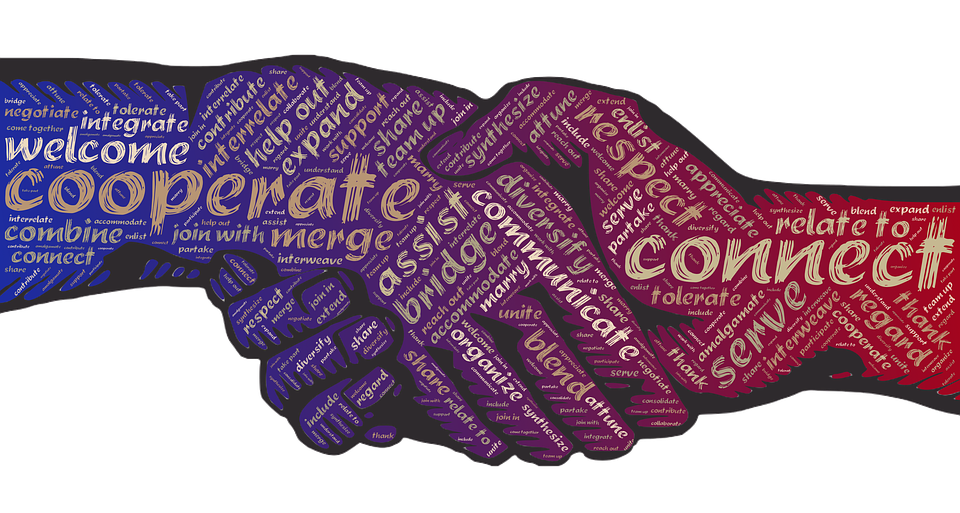Talking About Your Own Mental Health
First, let me start by saying that if you are in crisis and need help now, then reach out to someone who can get you help now. It does not matter what you say or how you say it, just say it. We have a lot of resources on our Crisis Resources page. And if that is too overwhelming call 1-800-273-8255 or go here to chat with someone who can help.
In my last Blog, we looked at how to reach out and talk to someone about their mental health struggles. But what if the mental health struggles you need to talk about are your own? Reaching out to help and better understand someone is very different than reaching out to get help yourself or asking someone to understand you. So today let’s explore the other side of the coin: how and when to talk about your own mental health struggles.
General Tips for the Conversation
Have a Plan: Trying to discuss these things off the cuff or under pressure can be difficult. Whenever possible, think about what you will say beforehand. Rehearse the conversation if necessary. Or, if you get tongue tied under pressure, consider writing down what you want to say or brining notes with you.
Know Your Reasons: If you are choosing to discuss your mental health struggles with someone, there is likely a reason for this. It is important to know what this reason is. Are you explaining why you hurt someone? Are you asking for help? Are you looking for an accommodation at your job? Are you needing validation? Are you informing a significant other as the relationship grows? Every reason is different. And every reason will require a slightly different conversation. Knowing your reason will help you find the words that need to be said, and have the conversation that needs to be had.
Be in Control of Yourself: Whenever possible, have these conversations only when you are in control of your behaviors and emotions. Avoid having these types of conversations when you’re in crisis, during a fight, or if you’re drunk or under the influence of a substance. These conversations are difficult to begin with, entering into them when you are out of control or are already beginning to spiral is only going to make things worse. I’ll be the first to admit, though, that sometimes life will force your hand and you won’t have choice. But do your best to create scenarios in which you do have a choice about when and how the conversation happens.
Set the Scene: As I discussed in my last blog, many people are uncomfortable discussing mental health struggles. They don’t have the vocabulary or the understanding, and they feel extremely awkward if not outright scared when discussing these matters. As such, it’s often best if you give the person an idea that the conversation you are about to have will be different. If you are out with your coworker for your normal coffee break and you randomly start talking about your most recent depressive episode, the other person may feel blind-sided and withdraw. Set the scene by letting the other person know that you want to talk about something personal, or something difficult. You don’t have to be super intense about it, but try to find a way to ease in when possible.
Be Prepared to Educate: Because a lot of people aren’t well versed in mental health struggles (or even mental health, for that matter) they may have a lot of questions. They may have difficulty understanding or relating to what you are saying. It’s ok to not have all the answers. You do not have to be an expert in the symptom, the mental illness, or even yourself. But be aware that you may be facing questions. It is up to you to decide how much you are willing to educate and answer. And a big part of this will be based on the context in which you are having the conversation.
Explain; Don’t Excuse: I am a firm believer that one’s mental health struggles don’t give you permission to be an asshole or not fulfill your responsibilities. Having said that, though, mental health struggles are highly likely to result in both of these things happening at some point. When you have the conversation, make sure you are explaining what is going on with you, not trying to defend or excuse bad behavior. There is a fine line between helping someone understand why you acted in a certain manner, and excusing yourself from the behavior. I have often found that explanations often include accepting responsibility for your actions, acknowledging and apologizing if you did “wrong” or hurt someone, and demonstrating you are honestly working to become healthier by creating a plan for the future to reduce or eliminate the negative behavior.
Set Boundaries and Expectations: Just as you may not know what to say to start this conversation, the other person may not know what to say in response. It can be helpful to set expectations. Let the person know if you just want them to listen or if you would like advice or whatever else you are hoping for. This will help guide the conversation in the direction you need it to go and give the other person an understanding of what you need. It’s also ok to set and enforce boundaries. If the other person asks for more information than you are comfortable giving, it’s totally ok to tell them no. It’s also ok to let the other person know if they are invalidating you and gently remind them that you are the expert on you.
Be Prepared for Bad Reactions: Ideally, we would live in a society where there was no stigma around mental illness and mental health struggles. We could talk openly about our experiences and be met only with empathy, validation, and acceptance. Sadly, we do not live in an ideal world. There is stigma. There is fear. And there is prejudice. This means that when you open up to someone about your struggles, you may be met with a bad reaction, a nasty response, apathy, or worse. Prepare yourself for this. Have someone supportive whom you trust standing by if things go sideways. This may be a friend, loved one, therapist, pastor, or even a mental health crisis hotline or chat service. Hopefully, the person you are talking to will be receptive. But if they’re not, knowing you have someone available you can go to so you can regroup is essential.
Now that we have some basic tips to guide us, we need to realize that how, why, and when we broach the subject of our mental health struggles is going to be very different dependent on the person we are talking to, our relationship with them, and the context of that relationship. The discussion you have with your boss will not be the discussion you have with your waitress and it will definitely not be the discussion you have with your significant other. So, let’s look at three main contexts for this discussion: Work, Acquaintances, and Intimate/Close Relationships.
Conversations with Your Employer
When it comes to your workplace, the reality is that your private business is your private business and work does not necessarily need to know anything about it. Now, keep in mind, as we discuss “work” or “your employer” we are talking about the company as a whole. We are not talking about bringing up your issues on a conversational basis with a coworker or a work friend. We are talking about officially discussing your mental health struggles with “the company”.
Recently, for my own job, I attended a Mental Health Accommodations webinar presented by Melanie Wetzel of the Job Accommodation Network (JAN). For those of you have not heard of JAN, this organization is an excellent source for free, expert, and confidential advice on disability employment issues and job accommodations. One of the things that Ms. Wetzel said was this, “Disclosure is a personal choice. If you do not need an accommodation, you do not need to disclose.” (This is paraphrased). Legally speaking, in the U.S., this is true and it is something you should keep in mind when deciding if you will discuss your mental health struggles with your employer.
Now from a broader perspective, you may have other reasons to disclose, even you don’t need an accommodation. Perhaps you would like to garner understanding with your supervisor. Or maybe you want to act as an advocate for removal of stigma from mental illness. Or maybe you are afraid your mental health struggles will affect or have effected your job performance. Or maybe there is another personal reason that drives you to bring up your mental health issues at work.
As I said at the beginning, it’s helpful to have a reason when having this conversation. When it comes to work, I would say it is vital to have a reason. The reality is mental illness and employment can quickly become a complicated issue. It is governed not only by personal choices made by you and your manager, but also by company policies, and even state and federal laws. So, if you are considering discussing your mental health issues with your employer, first clearly identify your reason for doing this.
Once you have your reason in hand, you are going to need to talk to someone. As a company is not actually a “someone”, you will need to speak to a person who represents the company. I always suggest starting with HR. Whatever your reason may be, HR in any business should be set up to help you sort through the mine field that is mental health and employment. Additionally, HR should also understand the nature of laws that govern mental illness and employment and be highly aware of the necessity for confidentiality with this type of information. In some cases, dependent on your reasons, HR may be the only people you need to talk to.
So now that you have your reason and you know who you are going to talk to, what exactly do you say? Ultimately, what you say, will be driven by your reasons for the discussion. Whatever it is you are saying, though, it is best to keep it succinct (short and sweet) and specific. Start the conversation with something like, “I need to talk with you privately about a personal matter.” This helps set the expectations of the other party. Next, let them know the specific issue at hand. There is no need to blather on about unrelates issues or bring up your entire back story or treatment history. Instead, focus in on what the current issue is and how it is affecting you at work. From there, it is also a good idea to share with them what you are hoping to accomplish by making this disclosure.
Remember, when it comes to work and mental illness, there are laws and policies that must be followed. This means that the company has the right to ask for documentation. It may not be enough to tell them you are self-diagnosed ADHD. If you are asking for an accommodation, if you are asking for them to make an exception for you because of your mental health struggles, you may be required to give them documented evidence that has been provided by a licensed health care provider such as a doctor, therapist, or social worker. HR should, ideally, guide you through the process. If you feel, though, that HR or your company is treating you unfairly reach out to JAN or a similar resource to help you.
Conversations with Acquaintances
Acquaintances, for the purpose of this discussion, are people you know and see fairly regularly, but you don’t know well. This can range anywhere from the coworker you say hi to, but never have lunch with; the aunt you only see once a year at the family reunion; or even the checkout person at the coffee shop you go to every morning. They are people that are present in your life, so your actions may effect them and their actions may effect you. But ultimately they just aren’t that meaningful to your existence.
Once again, when it comes to having this discussion with acquaintances, the conversation starts with identifying your reason. As you are not closely connected to the individual, why are you investing your time and energy into having this conversation with them? Common reasons include educating others, normalizing mental health struggles and removing stigma, explaining yourself if you have acted in an inappropriate (or abusive) manner, or responding to a sympathetic inquiry. The reason in this context is not as vital, because you are not tangling yourself up in corporate policy and federal laws. But, you will be spending your finite resources of time and energy for this interaction. So, knowing the reason will help you understand how much you are willing to invest.
If you are like me, you may feel the necessity to explain yourself to everyone you interact with. If this is the case, you may want to decide before jumping into a social interaction (such as a party, work gathering, or going to a bar) how much you want to say about your mental health struggles, what types of situations require an explanation, and what exactly you will say if you feel the need to speak about them. I don’t know how many times I have accidentally made an otherwise fine interaction awkward by bringing up my personal trauma out of context. Or by blurting out “I’m autistic spectrum,” like its some sort of required disclaimer I have to offer people. Remember, just as with work, your business is your business. It is your choice what you disclose. Everybody is weird in their own way and that’s ok!
Now if you have decided that you do, in fact, need to have this discussion and you are willing to invest time and energy into the discussion, it’s especially important to know what you want to say. Since you don’t know these people well, the conversation you have will, by necessity, have to be much more casual and you will need to get to the point quickly. It’s hard to work years of trauma history into a 2-minute interaction, after all.
Start by giving a segue into the discussion. Something like “I know this is probably going to be TMI, but I need to say this. . . “Or even consider asking permission by saying something like “I feel compelled to tell you something personal about myself. Is that ok?” Sadly, the world does not revolve around you and not everything is about your needs. (Something I have to constantly remind myself of!) It’s possible the other person does not want to get personal with you or simply does not have the energy to invest in you. If you are the one initiating the conversation, consider giving them a choice in the matter.
Once you have been given the go ahead, or have decided to just say “screw it, I have to do this or I’m gonna hate myself tomorrow” keep it specific. With your reason in hand, identify as specifically as possible the exact issue you are brining up. And why you are bringing it up. Keep it extremely short. And then act according to their reaction. If they need to pull away, maybe it’s best to let them. If they look like they want to know more, assess whether or not you are willing to tell them more. Remember, these are not your friends, they are simply people that exist in the same space as you. Make wise choices in what you say and how you treat them.
Conversations with Close Friends & Loved Ones
Now, let’s look at this conversation in the context of intimate or close relationships. This includes close friends as well as significant others (spouses, lovers, etc.). Now, oddly, this is going to be the shortest segment. The reason for this is because I am a very firm believer that there is not a right way to relationship. As long as there is no abuse between partners, then a healthy relationship is whatever it needs to be for the people in it. So, the nature of your relationship and the needs of your partner will highly dictate how this conversation goes.
Having said that, though, I will say that I do believe that if you want a truly supportive connection, you need to be honest and you need to be authentic. That means being open about who you truly are and the struggles you experience. Realistically speaking, as well, if your mental health struggles affect your functioning they will become an issue at some point. The other person will notice something is going on or will be negatively (or positively) effected by your actions. While it is up to you to decide how much, if any, you will disclose, keep in mind your reason for not disclosing. Are you keeping the information from the person because you are scared? Scared of losing them or how they would react? Or are you keeping the information from them because it actually works with the relationship dynamic or is truly irrelevant? If you are holding back because of fear, you may want to re-examine your motives, your choices, and your relationship.
When you have this discussion with close friends or loved ones, it is likely going to be big, detailed, and on-going. There will be times when you need to provide general explanations and there will be times when you need to focus on very specific behaviors (yours or the other person’s). Whether general, specific, or somewhere in between, it’s a good idea to keep the relationship context in mind when having this discussion. When bringing up issues, identify how you feel it is effecting you, the other person, and the relationship.
It’s also important to let the other person know what you need. It’s highly likely your needs will change from day to day or even moment to moment. The other person cannot read your mind, so you need to tell them. If you simply want them to listen, ask for this. If you need help changing something, ask for this. Sometimes you don’t know what you need, and in those cases let the other person know that as well. Be aware, though, of how you share your needs and the words you use. It can be a very fine line between sharing a need and making a demand. It’s important to ask the other person for input to ensure you are not being demanding or overwhelming them with your needs.
Now I am assuming that if you are close with this person, you care about them. If that is the case, then you need to make sure you are giving them space to express their own struggles, feelings, and thoughts. Remember, the world does not revolve around you, the other person has needs as well. The other person may have their own mental health struggles that may be triggered or exacerbated by yours. Or, they may simply have a hard time knowing how to react, handle, and be in a relationship with someone who has mental health struggles. Or maybe even, on the positive side, they are growing and changing in wonderful ways because of how your issues coordinate with theirs. Whatever the case may be, do your best to provide the other person a safe place to communicate with you and make sure you are actually listening to them.
A Final Resource
On a final note, I want to provide one last resource. This is a template from Mental Health America. If you find yourself struggling with what to say or how to say it, consider using this template to help frame your thoughts. It can be adapted for use in any context. It may seem a little stiff or awkward, but that’s ok. If you are not used to talking about these things with others, you may not yet have the language to do so. This template can help start the conversation.
Resources & References
Disclosing to Others, from NAMI
Coming Out About Mental Illness, from WebMd
Time to Talk: Tips for Talking About Your Mental Health, from Mental Health America
Job Accommodation Network, a great resources if you need help with disability or accommodations at work









